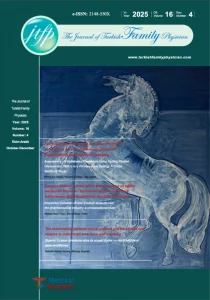Hidden dangers in adolescence: A case of Bulimia Nervosa diagnosed through detailed history and psychosocial assessment
The etiology of eating disorders is multifactorial, arising from a combination of biological, social, environmental and psychological factors. This study underscored the significance of expeditious diagnosis of bulimia nervosa by meticulously examining the comprehensive history and psychosocial evaluation of patient admitted to an adolescent health outpatient clinic. The patient; a 17-year-old male presented with complaints of weakness, fatigue, stomach pain, nausea and vomiting. The patient’s medical history revealed a self-perception of morbid obesity, a deliberate practice of vomiting, and recurrent binge eating episodes. The comprehensive evaluations conducted by the child and adolescent mental health unit led to the diagnosis of bulimia nervosa. It is imperative to emphasise that comprehensive psychosocial assessment and detailed history-taking are fundamental components of health examinations in adolescents. It is a recognised fact that adolescents with eating disorders are often afflicted with depression and may resort to suicidal thoughts and attempts. Early diagnosis and intervention are crucial for prevent complications of the disease.



